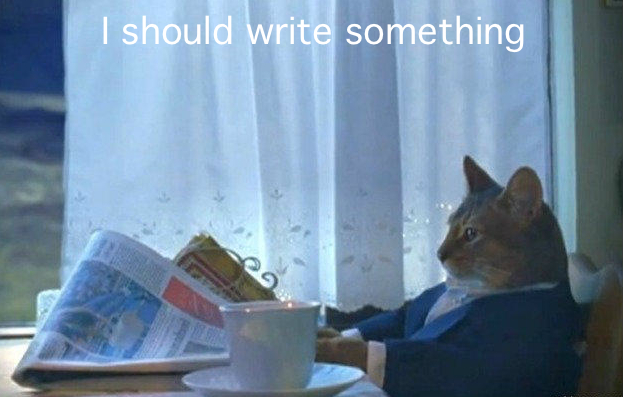We’re writing more than ever these days. Every day, you’re texting, emailing, and chatting. As many of us sit at our computers at work all day and our phones everywhere else in between, we’re writing.
Successful leaders believe writing is a crucial ingredient of great work. Amazon CEO Jeff Bezos, for example, insists that writing replace other forms of communication to make the most of meetings. Instead of jumping straight into a conversation, or snoozing through bullet-pointed sentence fragments in a slideshow presentation, he requires his senior executives to write six-page narrative memos.
He explains in a 2012 interview with Charlie Rose, “When you have to write your ideas out in complete sentences and complete paragraphs, it forces a deeper clarity of thinking.” In this age of knowledge work, we’re hiring people to think and communicate those thoughts — which means people who can write have a leg up.
Like most things worth doing, writing can be a chore. But the more fluent and practiced you become at the writing process, the more you’ll be able to own your success.
The Writing Process Improves How You Think
As much as we think of the benefit of clear writing for readers — the greatest value is personal because the writing process is so close to thought.
For the essayist and novelist Joan Didion, for example, writing is part and parcel of the process of thinking something through. She claims, “I write entirely to find out what I’m thinking, what I’m looking at, what I see and what it means. What I want and what I fear.”
According to cognitive psychologist Ronald Kellogg, too, writing isn’t just a window into the mind. It’s a tool that both expresses and shapes your thoughts. In The Psychology of Writing, he explains that thinking and writing are “twins of mental life.” And writing is the more challenging, involved twin, because “[w]riting not only demands thinking, it is also a means for thinking.”
In impacting how you learn, gain insight, and engage, Kellogg says, writing is special because you can actually “improve [your] thinking about a particular subject by writing about it.” Otherwise, it’s easy to tell by looking at a piece of writing when there hasn’t been much thought put into it. You’ll see a lack of ideas or development, a lack of coherence in the logic or organization, a lack of attention to an audience.
People often get very bashful about their writing skills and protest very loudly, “But I’m not a writer!” While they generally mean that they’re not publishing deep novels or beautiful poems or other works of great art, in doing so I think they discount the fact that writing is so closely tied to thinking. Far fewer people would protest, “But I’m not a thinker!”
Write Purposefully
After Kyle Wiens, CEO of iFixit, published a provocative post in the Harvard Business Review blog about how he never hires people who use poor grammar, he dug into why his message produced such a reaction:
Writing … is always personal. It exposes the writer’s ideas and ability (or inability) to navigate language. Writing is vulnerability.
And he’s spot on. The writing process can be an intensely vulnerable. It’s no wonder people get bashful — bringing out your inner thoughts and then even sharing them can be right behind public speaking on the anxiety and nerves scale.
Yet this vulnerable act is also a show of strength. You’re committing something to paper (or screen), transforming the transience of thought by recording it where someone can read it.
In the workplace, it’s often easy to feel buffeted by the demands of other people — and writing things down and sharing them is a compelling way to gain a sense of control, achieve mastery, and show up for work in way that actually means something.
Write Whenever You Can
If you’re serious about improving your writing process (and, by extension, your writing), you need to write as often as possible.
Sure, you’re sending emails or updating social media often, but consider expanding your writing practice. Like anything, writing (and thinking like a writer) is a muscle, and it needs exercise. Consider starting a blog to practice articulating your thoughts into a clean, readable format. You can set your blog to private if you don’t feel like sharing your thoughts.

This can also take the form of a journal or diary, either written long-hand or even just in a Word doc on your computer that no one will ever see.
Writing out longhand may be a particularly good idea: it’s been shown to improve memory and limit self-editing, so you keep writing instead of stopping and futzing with your sentences.
It really doesn’t matter what you write about. Review the movies or TV episodes you see on Netflix — even just a paragraph or to. Make it a routine, taking the time at the end of the day to jot a few thoughts down on the things you’ve seen. Are you a music fan? Write a post about a song you’ve just discovered, or one you think doesn’t get enough attention.
If you make this a regular part of your day (or even three times a week), you’ll find your writing and your ability to communicate improving dramatically.
Better yet, it’ll keep your writing momentum going, even if you’re not working on anything writing-heavy at the moment.
If You Write, You’re a Writer
Smart people value writing, and even when they may not feel confident about their skills, they find inherent value in the process.
Consider yourself a writer. See what that feels like, whether that changes how you go about your work and whether you start noticing different kinds of details.
Everybody has to learn. As the great Ernest Hemingway once said, “It’s none of their business that you have to learn how to write. Let them think you were born that way.”
The writer is a thinker and an observer, someone who has the discipline, attention span, and patience to sit through the very often painful, laborious, and sometime marvelous act of translating the wisps and threads in your head to something coherent, distinct, and substantive.
P.S. If you liked this article, you should subscribe to our newsletter. We’ll email you a daily blog post with actionable and unconventional advice on how to work better.



